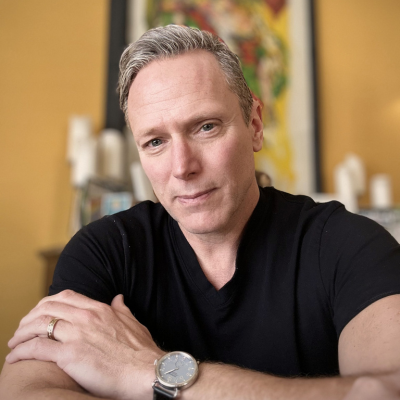News and Updates
Contact
Faculty of Social Science
Social Science Centre
Room 9438
Western University
T. 519-661-2053
F. 519-661-3868
E. social-science@uwo.ca
Bridging Theory and Practice: Wes Kinghorn's Innovative Approach to Tourism Education at Western University
March 03, 2025By Diana Corredor Wes Kinghorn's Innovative Approach to Tourism (Canva Images)
Wes Kinghorn's Innovative Approach to Tourism (Canva Images)
In the Faculty of Social Science at Western University, students are not just learning about tourism theory—they are applying it in ways that create tangible value for both their education and the local community. At the helm of this innovative approach is Wes Kinghorn, Assistant Professor in the Geography and Environment Department, who has been leading real-world projects that provide students with hands-on experience while benefiting local businesses.
Each year, Kinghorn customizes assignments that pair students with industry partners, transforming theoretical coursework into practical application. His second-year course, Geography of Tourism (Geography 2144), incorporates industry-driven projects that give students the opportunity to analyze and develop real-world tourism strategies. One of the most notable collaborations in recent years was with the London Bicycle Café, led by Andrew Hunniford.
Transforming Tourism Through Data-Driven Insights
The project with London Bicycle Café focused on enhancing active transportation networks across the city. Situated at the forks of the Thames River, adjacent to the Thames Valley Parkway (TVP), the café sought to better understand how businesses along the TVP could engage with cyclists and pedestrians.
Through Kinghorn’s course, 500 students were each assigned sections of the TVP to identify local businesses that could benefit from increased foot and bike traffic. Their task involved analyzing these businesses, assessing their appeal to active transportation users, and devising strategies to market them to potential customers. The final dataset, compiled using the Brightspace quiz tool, provided invaluable insights for London Bicycle Café, equipping them with a comprehensive database of potential partner businesses.
The impact of this initiative was profound. As Hunniford noted in Western News’ article, “Western sets goal for all undergrad students to participate in experiential learning by 2028”: “It would have taken tens of thousands of dollars in consulting contracts to generate comparable research. When do you get the opportunity to have 500 educated people weigh in on your problem? We would not have been able to replicate this on our own.”
The Challenge of Scale and the Power of Collective Knowledge
One of the most significant challenges Kinghorn faces is scale. With over 500 students in his class, traditional case studies and small-group projects simply don’t suffice. Instead, he has developed a model that harnesses the collective power of his students, turning them into a large-scale research team.
 “It’s a bit unruly at times, but it’s worth it,” Kinghorn explains. “Most professors working with industry projects have 30 or 40 students. I have 500. I have to design assignments that are both meaningful for the students and valuable for the industry partner. That balance is key.”
“It’s a bit unruly at times, but it’s worth it,” Kinghorn explains. “Most professors working with industry projects have 30 or 40 students. I have 500. I have to design assignments that are both meaningful for the students and valuable for the industry partner. That balance is key.”
This project-based learning approach not only benefits the community partners but also enhances student engagement. Students walk away from the course feeling like they have contributed to a real-world initiative. “They love it,” Kinghorn says. “By the end of the term, they’ve gained a deep understanding of tourism theory, and this project lets them apply that knowledge in a practical way. They aren’t just students anymore—they’re consultants.”
This collaboration was made possible through the Industry Project, an initiative run by Careers and Experience at Western. The program connects faculty members with community partners, creating hands-on learning opportunities for students while providing businesses and organizations with access to valuable research and data.
What’s Next?
While the London Bicycle Café project has wrapped up, Kinghorn is already gearing up for a new partnership. Though the details remain under wraps, he assures that the next industry collaboration will continue the tradition of blending theoretical learning with hands-on application.
Kinghorn’s work is a testament to the power of experiential learning. By seamlessly integrating academics with industry needs, he is not only enriching the student experience but also contributing to the broader tourism landscape in London. As his projects evolve, one thing remains clear: when education and community engagement intersect, everyone benefits.

